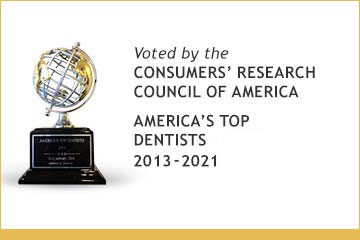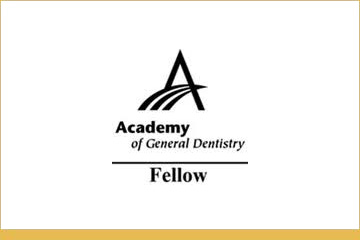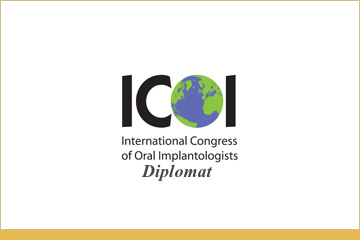Let’s be honest. We all dislike our smiles at some point in our lives. Whether our teeth look too yellow or they appear too crooked, we all want a beautiful, white smile we can feel proud of. The solution to a poor smile can be found in one little dental appliance: dental crowns.
If you don’t know much about these devices or exactly what they do, read on. In this blog, we’ll discuss dental crowns at length. We’ll tell you what they are, what they do, and how you can benefit from these dental caps.
What Dental Crowns Are
As previously mentioned, dental crowns are small dental devices, commonly known as dental caps, that cover your teeth to improve their look and function. Crowns also protect your already damaged and fragile teeth from further harm.
Essentially, a crown is a false tooth that covers a damaged or severely discolored tooth. Your dentist will place the cap over top of the natural tooth to enhance your smile. Dental crowns also provide extra support and protection for teeth that are weak or damaged.
Additionally, crowns can be used along with dental implants (a titanium screw that embeds into your jaw bone) to completely fill a gap in your teeth.
Crowns can be made from the following materials:
- Ceramic
- Gold
- Palladium
- Porcelain
- Resin
- Silver
- Stainless steel
- Zirconia
Cosmetic crowns are typically made of ceramic and porcelain to better match the color of your other teeth. Metal crowns are a much better option if you need to cover your back teeth, since the metal is more durable. Nowadays, however, many people choose ceramic and porcelain crowns so they can have a fully white smile.
How the Procedure Works
This procedure usually happens within a few visits. First, your dentist will clean your mouth and inspect the tooth that will receive the crown. He or she must examine your tooth to ensure that it can sufficiently support a dental crown. Then, your dentist will file the tooth down and shape it so that the crown can fit properly in place.
If your tooth is broken or too damaged, your dentist will likely fill the tooth so it can better support the crown. Sometimes, however, your dentist may need to remove your tooth and replace it with a dental implant.
After your dentist has prepared your tooth, he or she will then take a mold of the tooth and the surrounding teeth. Some dentists use the traditional method to make molds by using a rubber-like product, while other dental experts use digital imaging and technology to take the impression of your tooth.
Your dentist will send the mold to a lab, where technicians use it to create a custom crown that perfectly fits your mouth. Your dentist will also put a plastic, temporary crown over the prepared tooth to protect it until you receive your permanent crown.
Once your permanent crown has been made, you’ll go back to your dentist. He or she will switch out the temporary crown for the permanent one. Then, your dentist will fit the crown accordingly and anchor it in place with an adhesive.
What Benefits Dental Crowns Provide
Dental crowns can last for 5 to 10 years, but some can last up to 15 years or so if you take good care of your teeth and the crown. You can expect to receive the following benefits when you receive a dental crown:
- Crowns replace missing teeth to keep your other teeth aligned. You can also feel more confident in a full smile.
- Crowns repair broken or damaged teeth so you can eat normally.
- Crowns cover discolored teeth so you can achieve a whiter smile sooner.
- Most crown materials look natural, so no one will notice the caps.
Additionally, crowns don’t shift around in your mouth since they’re cemented in place. You can use your mouth more freely as a result.
How to Care for Your Dental Crowns
While crowns are durable, you should care for them properly to enhance their lifespan. Take the following steps to care for your dental crown once it’s been placed:
- Brush and floss your teeth regularly. Your teeth may feel sensitive for a while, so use a sensitivity toothpaste to reduce the discomfort.
- Don’t chew on ice or similarly hard foods—they could damage the crown.
- Visit your dentist for routine cleanings and so he or she can inspect the crown’s condition.
You should also properly care for your teeth so you can avoid other dental issues. For example, while the crown is impervious to tooth decay, the tooth beneath the crown is not. Avoid eating and drinking sugary or acidic foods and drinks if possible.
Take the First Step to a More Beautiful Smile
If you need to get dental crowns to restore or improve the look of your smile, don’t hesitate to contact your dentist. He or she will answer any questions or concerns you may have about crowns or the procedure. Additionally, your dentist can provide you with further tips to care for your crowns so they last as long as possible.
Need another dental service to improve your oral health? Call your dentist and schedule an appointment today.
If you’re in the Kennesaw area and are in need of a dentist, a friend told me that Mountain View Dental provide a great service. It is worth looking into.








